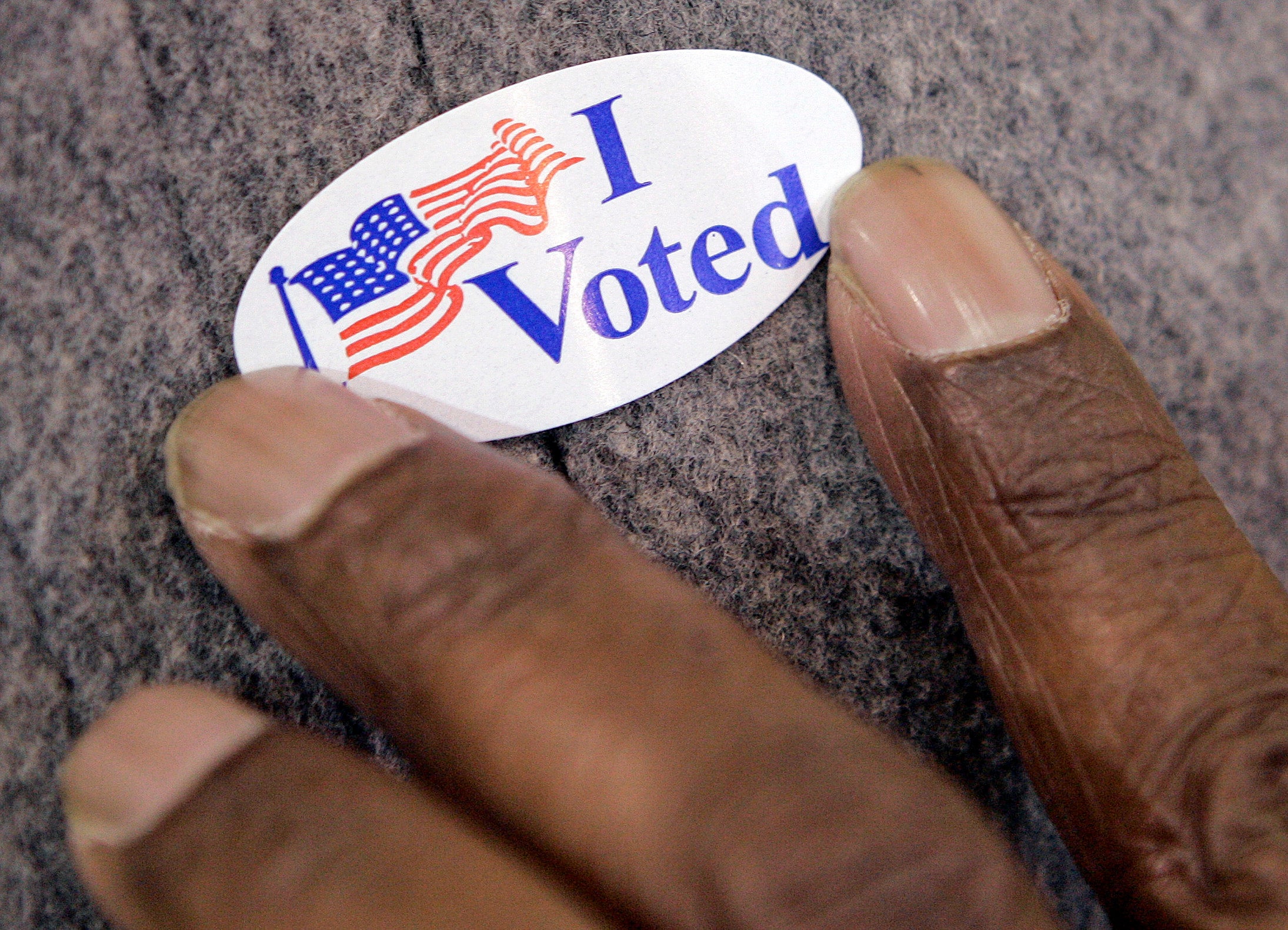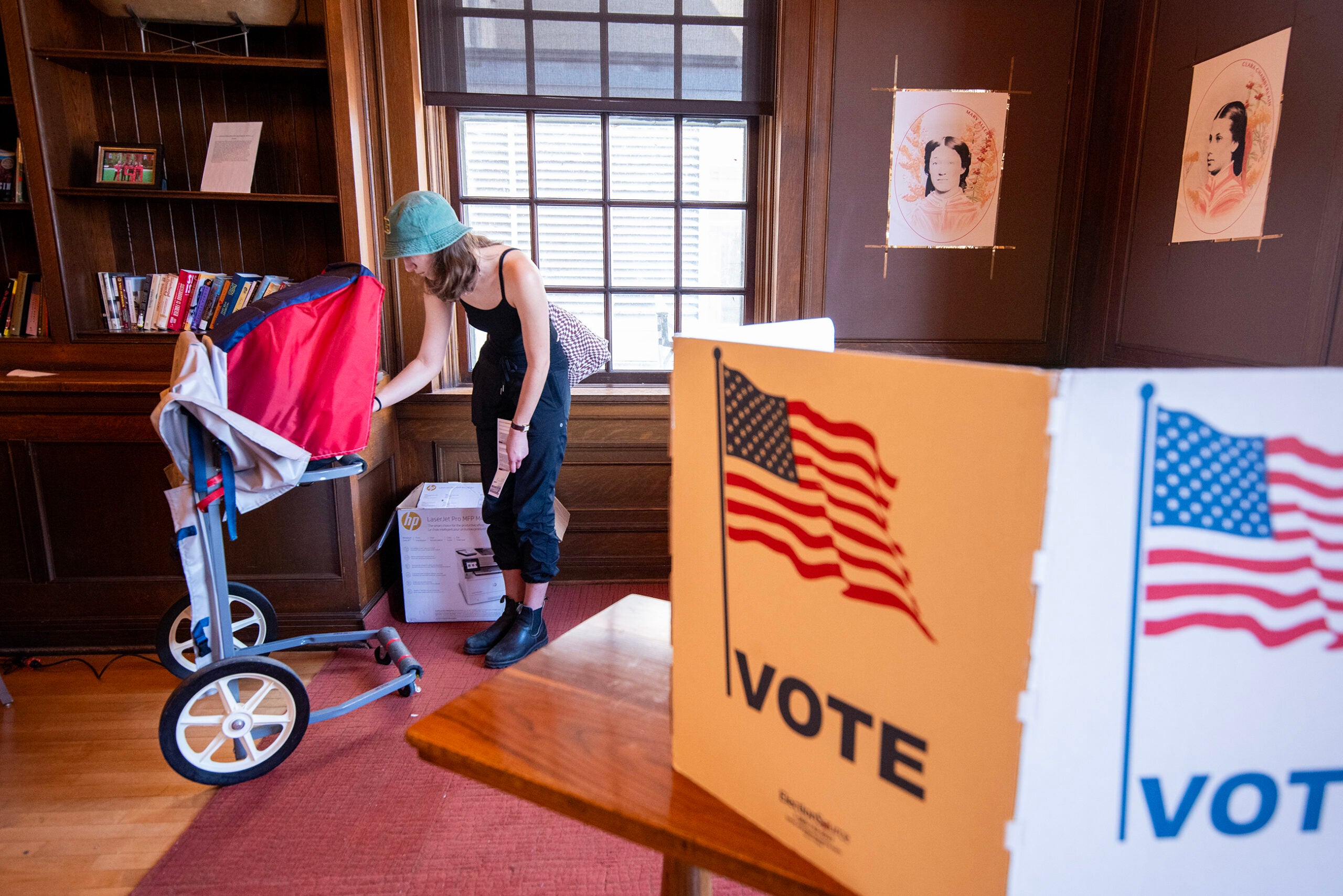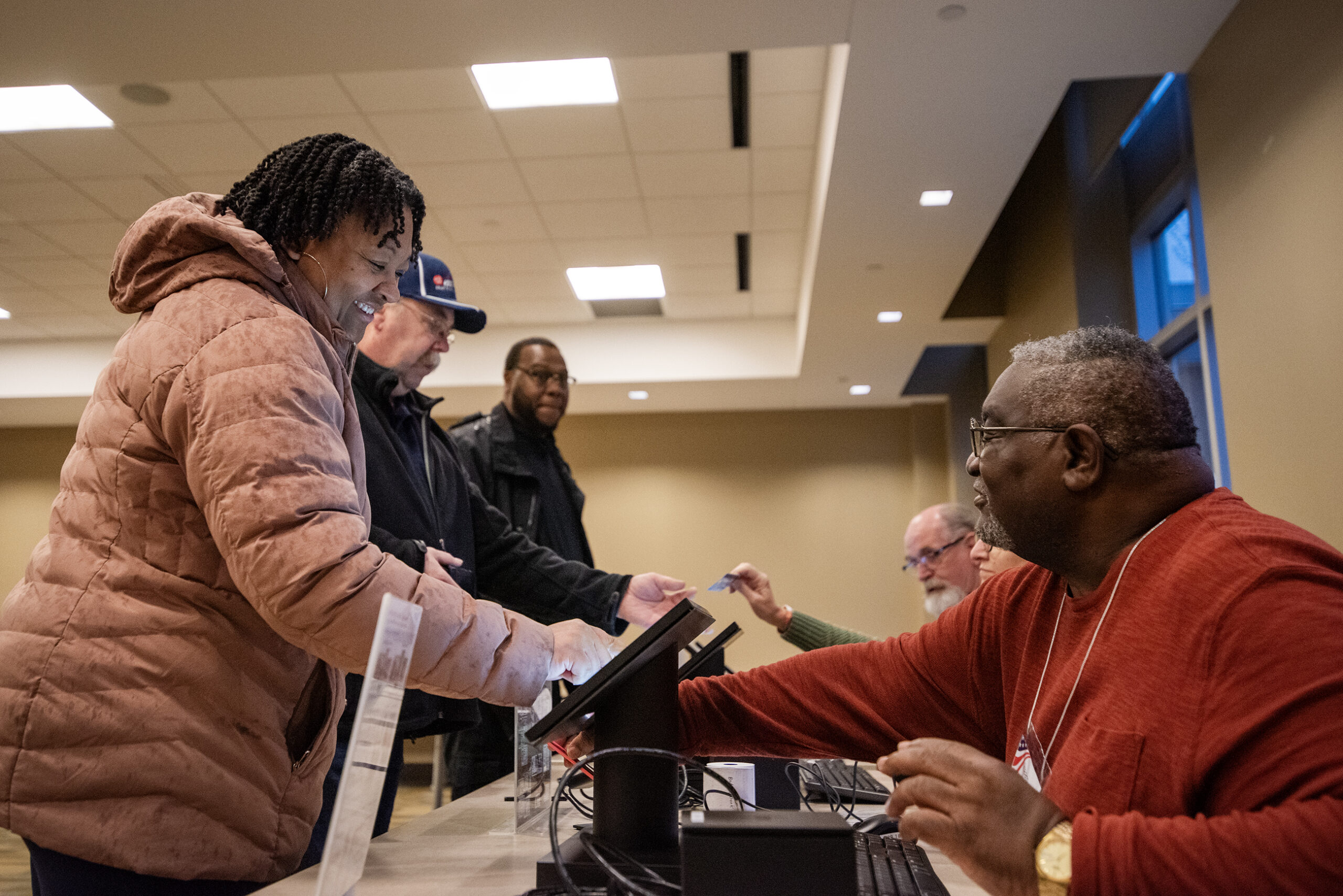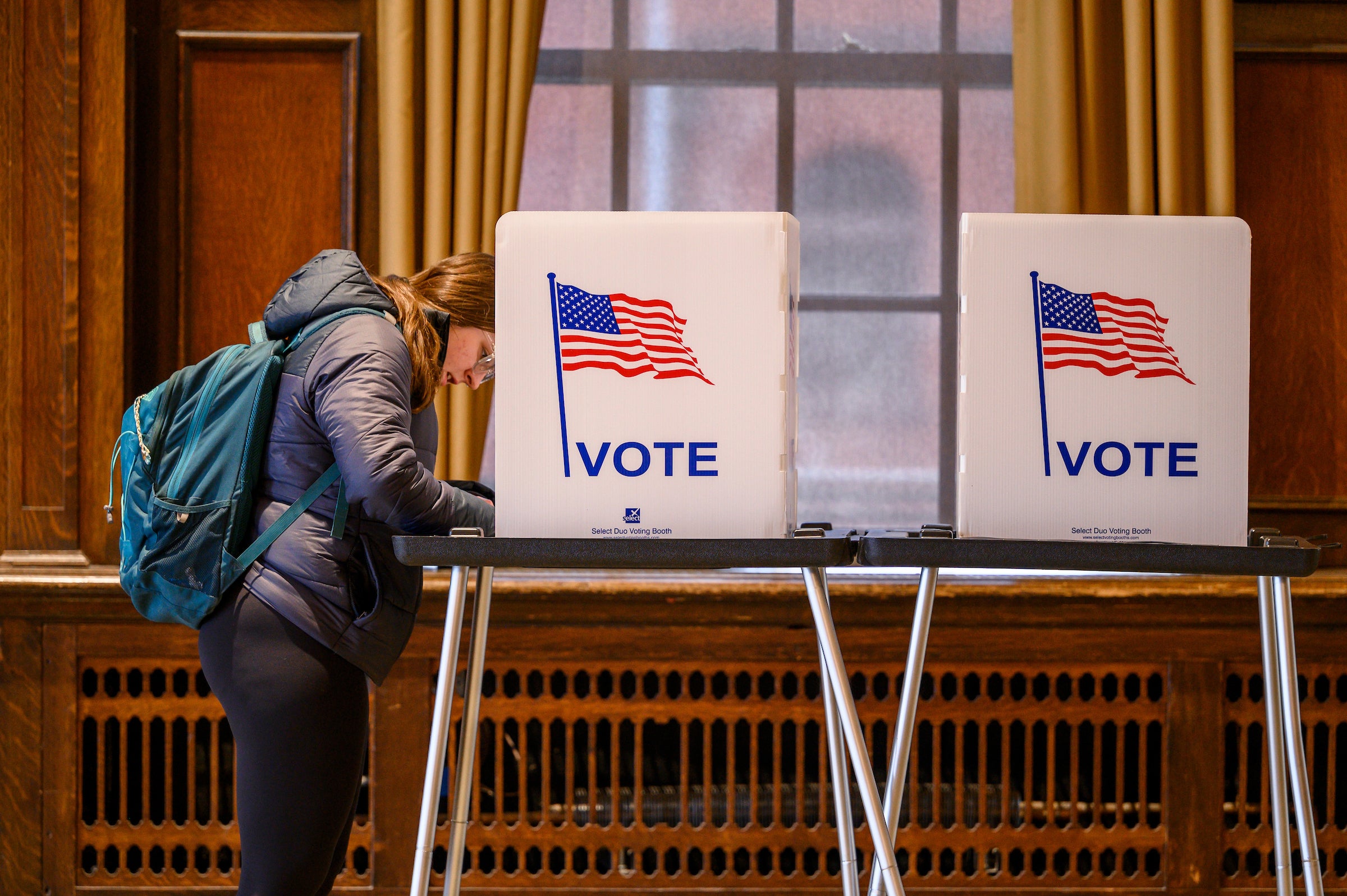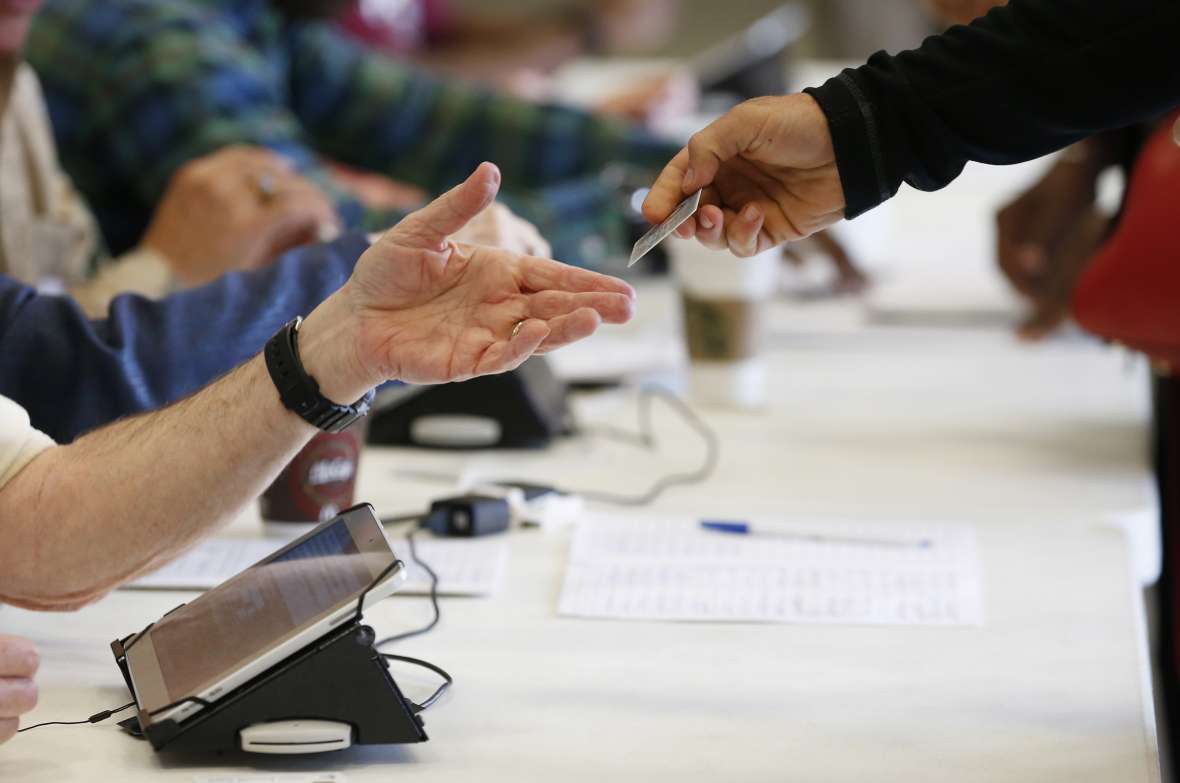Mary Conarchy lives at the Harwood Place assisted living facility in Wauwatosa, and at age 89, she says it would be hard for her to get to a polling place on Election Day.
“Because of my condition, getting to and from, it would have been very difficult,” she said. “I haven’t driven for over two years.”
So like other older adults, Conarchy voted absentee. Her ballot came in the mail, she filled it out, and her daughter mailed it in.
Stay informed on the latest news
Sign up for WPR’s email newsletter.
Conarchy isn’t alone. Transportation on voting day can be difficult, said Jim Murphy, Wisconsin Assisted Living Association executive director. He said Wisconsin’s voter ID law, which is in effect for this upcoming election, poses an issue to older adults who don’t drive and may not have a valid driver’s license.
“In the past they didn’t need to present ID, and even though the last election they had to, in the primary, they maybe didn’t vote,” Murphy said.
He said tracking down a birth certificate to get a state-issued ID just for voting can be really hard for older adults born at home or who changed their name. Murphy hasn’t seen any issues yet, but expects there will be some before Nov. 8.
“We’re gonna see, I think, a certain amount of that tension between people who voted and now find they can’t vote,” he said.
Grant Blum lives in the Hillview Health Care Center run by La Crosse County. He’s voted in every presidential election since 1960. Voting is an “obligation of citizenship,” he said. But this election is particularly important to him.
“My roommate and I have been watching news instead of football with the way this presidential election has been going,” Blum said.
Blum also plans on voting absentee, for health and mobility reasons.
“We have residents here that are long-term residents that have voted their whole life,” said Brooke Smith, recreation therapy manager at Hillview. “If they’re not able to vote here in the nursing home, I don’t know how else they would be able to vote.”
Smith volunteers as a special registration deputy, which means she’s deputized by a clerk to register voters. But under a recently passed law backed by republicans, special registration deputies will be eliminated and replaced with online registration. There will still be people who register voters at residential care facilities, such as Hillview, called election registration officials.
Smith said it’s important residents have this option.
“Just because they are aging and they are in a nursing home does not mean that they are not able to still vote, does not mean that they’re not keeping up in the news and they’re not watching and they still have a say,” Smith said. “They are citizens, and they should be able to vote regardless of where they live.”
Helen Marks Dicks advocates for state issues for the AARP of Wisconsin. She said it’s been difficult for many voters to keep up with what they need to bring to the polls.
“There’s a lot of confusion out there about what the law actually is,” Dicks said. “It’s on, it’s off, it’s modified, it’s changed. I mean, that’s one problem, and that’s just simply if the law’s in effect.”
This confusion can be discouraging to voters, Dicks said. But, there are other options for people who don’t have a valid Wisconsin driver’s license.
“Sit down and go through the list of what you can have,” Dicks said. “You might have a passport, you might have some kind of a valid ID, so check and make sure you can do what you might have. If you don’t have that stuff, then the next step is to head for the DMV.”
Complete information about what to bring to the polls can be found here.
Hope Kirwan contributed reporting to this story.
Wisconsin Public Radio, © Copyright 2025, Board of Regents of the University of Wisconsin System and Wisconsin Educational Communications Board.
